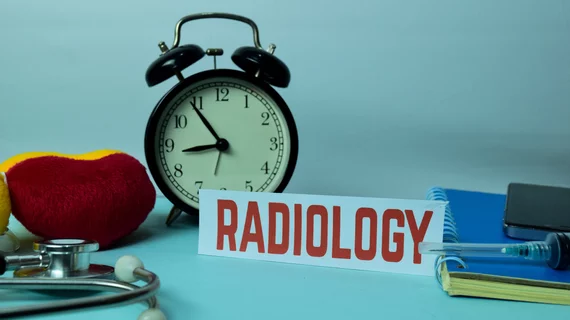Patients continue facing weekslong delays at Radiology Partners affiliate
Patients at Rad Partners affiliate Jefferson Radiology continue to face delays for diagnostic imaging results one month after initial reports surfaced.
NBC Connecticut first shared Dec. 11 that customers at the Hartford-based radiology group were waiting weeks for results from routine exams such as mammograms. WFSB Eyewitness News followed with a second report Monday, noting that long lag times still plague one of Connecticut’s largest radiology groups.
Vanetta Hayhurst told the TV station it took almost four weeks to hear back following routine breast imaging. Margaret Lukasyk said her delay last year was closer to five weeks.
The West Hartford woman posted her “anxiety provoking” concerns in a neighborhood Facebook group and found she was not alone.
“The floodgates just sort of opened up and people were chiming in and saying what great difficulty they had and how long the waits had been,” Lukasyk told the news outlet. “I think at least like 100-plus comments about how long people have been waiting and what difficulty they have experienced.”
Susan G. Komen estimates that mammogram results should take no longer than two weeks, while one Massachusetts radiologist said the wait should be “one week or less.”
In December, Rad Partners said it has faced “unprecedented demand” in Connecticut while noting that it is actively hiring and working to improve processes. RP sent a new statement to WFSB in response to their reporting while declining to be interviewed.
“We understand that delays can cause stress and uncertainty, and we recognize the impact this has had on our patients,” a spokesperson told the outlet. “We have taken important steps to address these challenges by expanding our clinical team to improve capacity, optimizing workflows to reduce wait times, mobilizing expert radiology groups from across the country to read exams, and sharing alternative imaging center options to ensure patients have access to care. These efforts have greatly enhanced our ability to deliver timely results, resolving delays and positioning us to consistently provide reliable and efficient care moving forward. We remain deeply committed to enhancing patient care and meeting the needs of our patients, referring providers, and community.”
Founded in 1963, Jefferson Radiology employs nearly 80 physicians working across 10 locations, according to its website. Mednax acquired the practice in September 2017 before selling its radiology business line to Rad Partners for $885 million in December 2020. Jefferson as of Jan. 13 was seeking to fill 30 positions, according to its website, including vice chair of breast radiology, remote overnight emergency rad and several technologist slots. RP, meanwhile, was founded in 2012 and employs 3,900 radiologists servicing over 3,400 hospitals. At last count, physicians owned 33% of the El Segundo, California, company, with private equity firm Whistler Capital, venture capital group New Enterprise Associates and the Australian sovereign wealth Future Fund holding the balance.
Massachusetts-based Beverly Radiology Associates physician Elie Balesh, MD, speculated that Jefferson’s ownership structure is contributing to the delays.
“Financial considerations now take the forefront and…sometimes push aside that doctor patient relationship,” he told WFSB.

